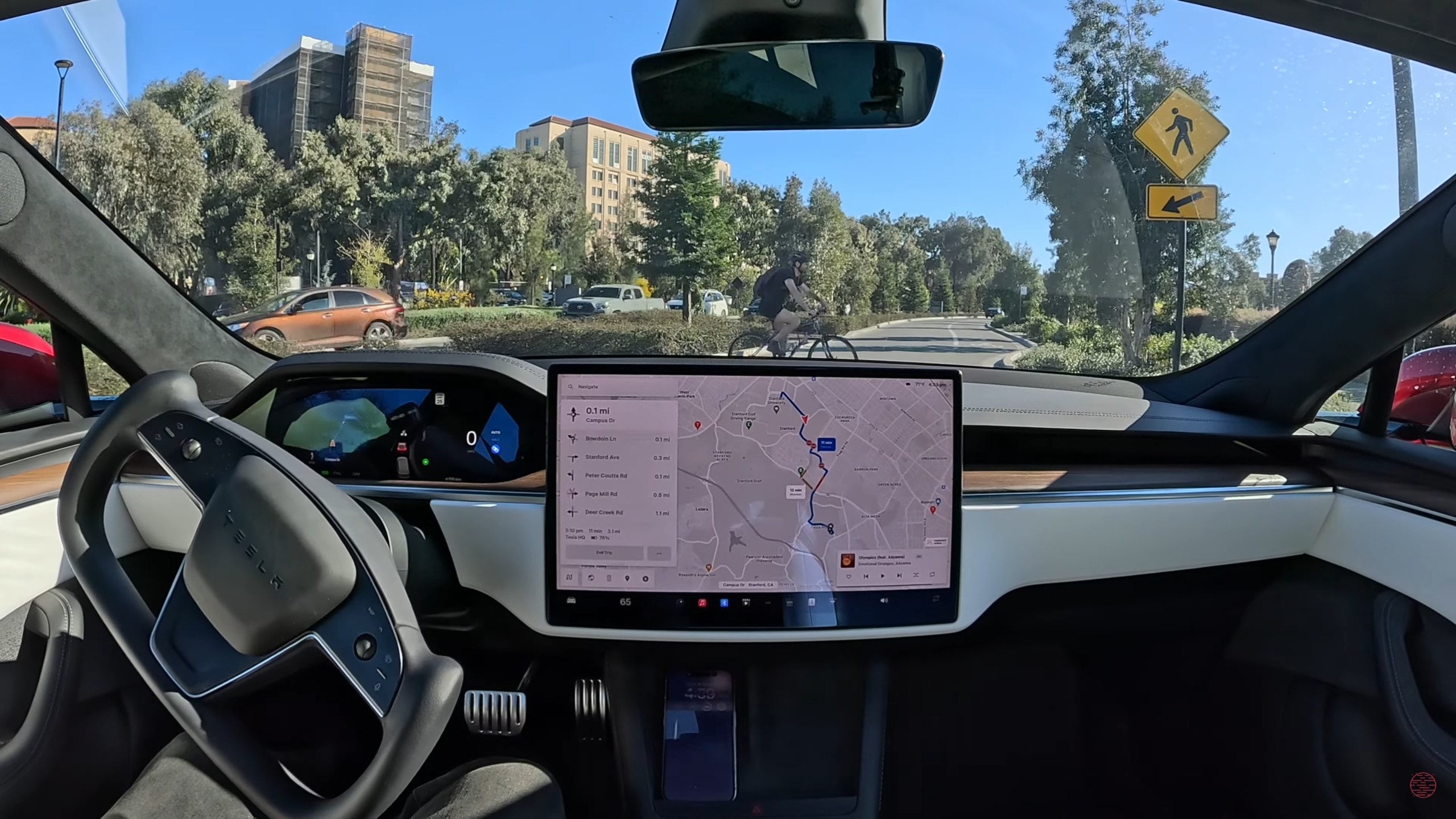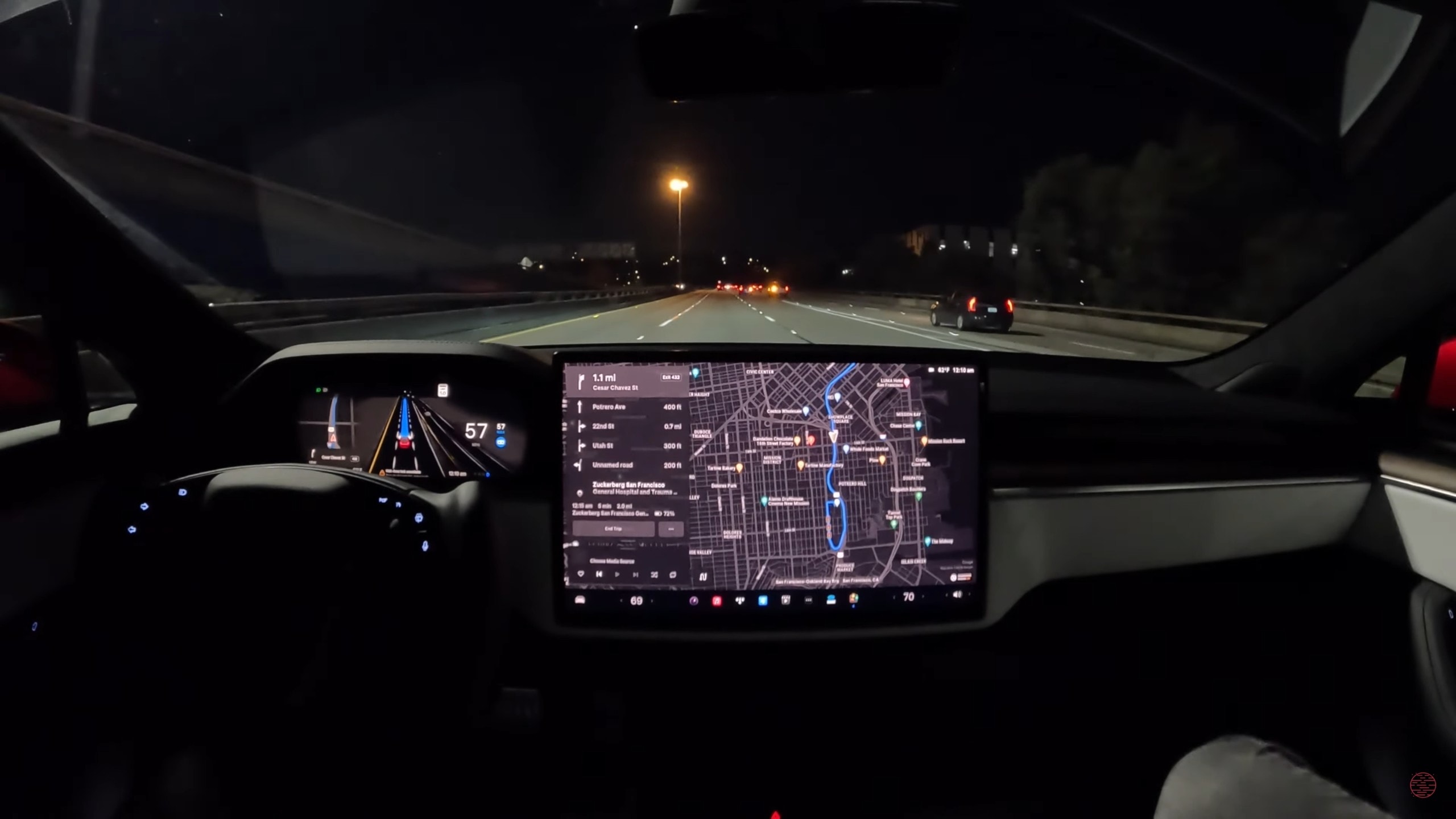With the rollout of FSD Beta V12.3 to customer vehicles, praise for its performance floods social media, with reports of extended driving sessions without disengagements. However, this marks a critical juncture for Tesla’s controversial driver assistance system, as heightened trust may lead to complacency among users.
After years of anticipation, Tesla appears to have made significant strides in achieving full self-driving capability with the release of FSD Beta V12, heralded as “mind-blowing” by CEO Elon Musk. While Musk’s enthusiasm is not new, the latest iteration has garnered unanimous acclaim for its human-like driving performance.

Videos and reviews showcasing the new software highlight Tesla’s progress towards autonomous driving, with users reporting hours of uninterrupted driving across diverse scenarios. Yet, questions resurface regarding the system’s readiness for unsupervised operation.
Tesla’s classification of Autopilot and FSD Beta as Level-2 driver assistance systems, despite their advanced capabilities, raises concerns about accountability and liability.
While Tesla’s FSD Beta may outperform higher-level autonomous systems in functionality, it lacks the accompanying responsibility accepted by manufacturers like Mercedes-Benz.
The apparent smoothness and reliability of FSD Beta V12.3 may breed overconfidence among users, potentially leading to dangerous situations if the system encounters unexpected challenges requiring human intervention.
As the user base expands beyond seasoned testers to include newcomers, the risk of accidents due to misplaced trust in FSD Beta’s capabilities grows. Despite technical advancements, Tesla’s self-driving software remains a Level-2 driver assist until clear guidelines on accountability and liability are established.
While FSD Beta V12.3 showcases tangible progress, its seamless operation underscores the need for cautious adoption and continued oversight to ensure safety on the road.

